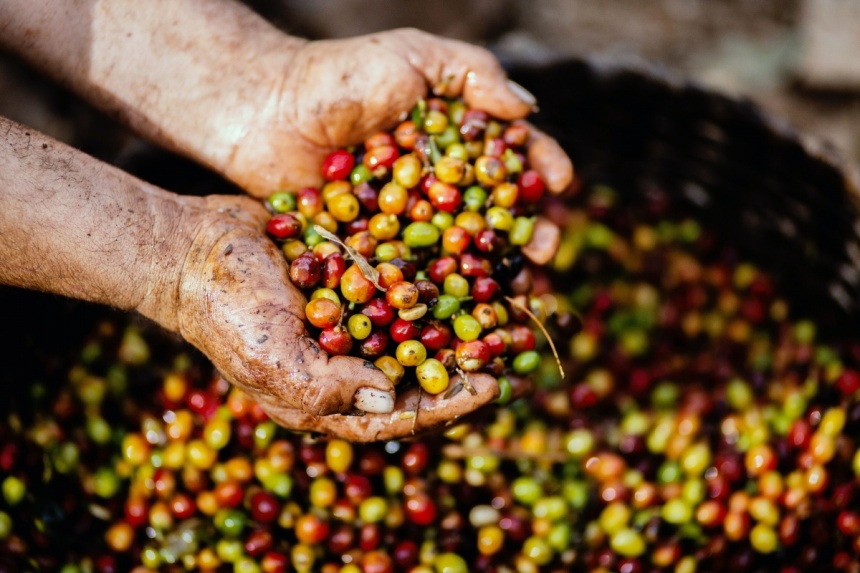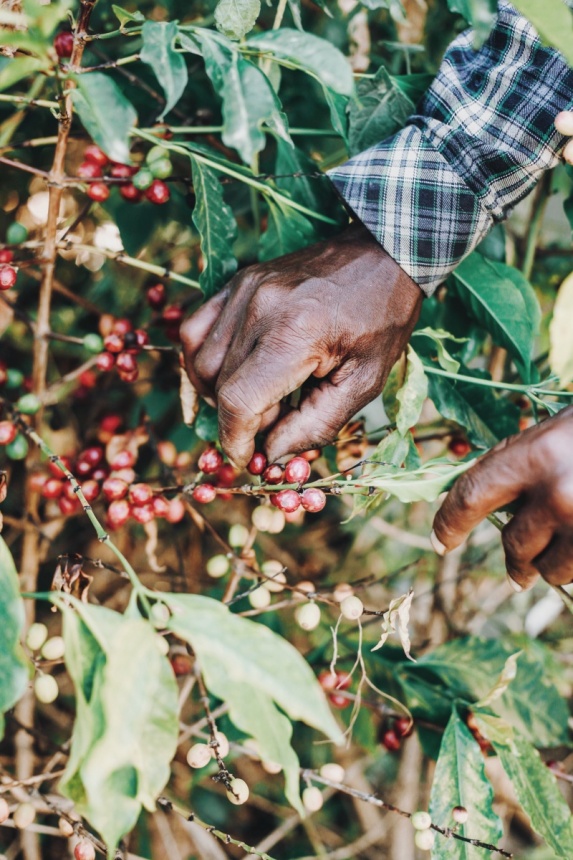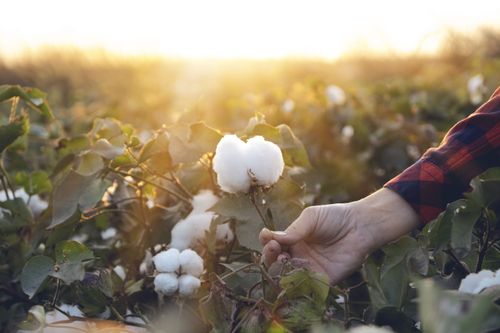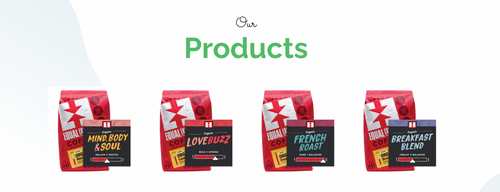The coffee industry is in a state of emergency. Coffee is one of the most in-demand commodities on the planet, with the global coffee industry worth over $200 billion. Yet, many coffee farmers struggle just to feed their families.
This global coffee crisis is due to the incredibly cheap price of coffee. Coffee farms, many of which are located in developing countries, are struggling to cover their costs, let alone make a profit. They are forced to lower their standards, lower wages or fire workers, and grow in a hazardous or unsustainable way. We contribute to this problem when we purchase cheap coffee from companies that value ease and speed over quality and fair wages.
You Can Help by Drinking Fair Trade and Organic Coffee

All of us can impact the coffee industry in a positive way. By purchasing Fair Trade and organic coffee, you can ‘vote with your dollar’ for a quality product, ethical farming practices, and fair living wages for coffee growers. Read on to see how drinking Fair Trade and organic coffee can help with the global coffee crisis.
Fair Trade Helps Farmers Get Paid Fairly
The incredibly cheap price of coffee is one of the main culprits of the global coffee crisis. Something called the ‘C Price’ largely dictates what a coffee grower can sell a bag of coffee for on the market. The ‘C Price’ is what coffee is sold as a commodity for on the New York Stock Exchange. Although this doesn’t directly control how much a supplier will be able to sell their coffee for, it is the basic guideline for anyone buying or selling coffee.
The C Price dropped from $2 a pound in 2014 to a 14 year low of 89 cents a pound in 2019. At this price, almost any coffee producer would be selling at a loss. This means debts pile up, laborers’ wages are slashed or they’re fired, and communities go hungry.
Although the reasons for the volatile coffee price are complex, Fair Trade Coffee offers a solution. The Fair Trade minimum price guarantees those who sell on fair trade terms at least $1.40 per pound, or $1.70 per pound if the coffee is also certified organic. This is only a minimum benchmark, and if the market price goes over the benchmark, then coffee growers would be able to trade at a higher price. Having a minimum price helps coffee farmers make smarter investments, hire and pay workers with confidence, and feed their families.
Fair Trade Terms Help Communities

An estimated 90 percent of globally traded coffee comes from developing countries, and the global coffee crisis has hit poor, rural communities the hardest. In some cases, the health and welfare of an entire community depend on the success of a single farm. In places like Guatemala, coffee farmers who are forced to operate at a loss because of the falling market price of coffee sometimes abandon their farms and attempt to migrate to the US in hopes of a better life.
Fair Trade coffee is sold with terms that help communities. On top of the minimum benchmark price, producers also earn an extra $.20 on each pound of coffee sold on fair trade terms for their Community Development Fund. From this fund, coffee farmers in their cooperative can vote democratically on how they want to allocate their funds.
Farmers can put this money towards supporting their communities on a social, economical, or environmental level. At least 25 percent of this money must go to improving their own operations, by leveling up their productivity and quality initiatives. This helps farms be more resilient in the face of climate change and a volatile market.
Fair Trade Encourages Healthy Growing Practices
When farmers are operating at a loss due to lowered market prices, they often are forced to cut costs by any means. They may begin to use unsafe methods to grow their crops more cheaply. In some cases, they are compelled to fire workers and rely on chemicals more than labor. Instead of growing coffee in its natural, shady environment, they may grow hybrid plants in full sun. These hybrids can be harvested more quickly and planted more densely. This puts the farm at risk of soil erosion and destroys the natural balance of the local ecosystem.
When farmers are being paid an adequate amount for their products, they are able to maintain healthy growing practices and invest in environmentally sustainable processes. Although Fair Trade USA doesn’t require coffee growers to operate organically, they do offer a premium price for organic coffee. They also have an Agricultural Production standard that, according to the Fair Trade USA website, includes ‘a range of environmental protections with criteria related to efficient water usage; protection of biodiversity, forests, and waterways; prevention of the use of GMOs and reduction of harmful pesticides; utilization of techniques for integrated pest management and soil health; and waste disposal management.’
Luckily, more organically grown coffees are certified as Fair Trade than ‘conventionally’ grown coffees. Between 1998 and 2018, Fair Trade USA certified around 1.06 billion pounds of organic coffee. They only certified 780 million pounds of conventional coffee.
Organic Coffee Is Grown Without Chemicals
Meeting the huge demand for coffee around the world, at incredibly cheap prices has not been easy on farmers. As a result, farmers are forced to grow coffee in a way that puts themselves, the environment, and the consumer at risk.
Conventionally grown coffee is one of the most heavily chemically treated foods in the world. Growers use synthetic fertilizers, pesticides, herbicides, fungicides, and insecticides in order to increase production with less manpower. These chemicals are harmful to the workers who handle them and to surrounding communities who are subjected to them through air or water.
Farmers grow organic coffee without chemicals. You know that by drinking an organic cup of joe, you’re not inadvertently contributing to the poisoning of a village’s water supply. Organic practices include feeding the soil with natural products, like compost, and often help the entire ecosystem of a farm become more healthy and viable.
You Can Do Something About the Global Coffee Crisis

By drinking Fair Trade and Organic coffee, you can have a positive impact on the coffee industry. Fair Trade and organic coffee are more expensive and that is a good thing. If you value the lives and livelihoods of the people who grow and produce your coffee, then you should want them to get paid what their coffee is worth, not less.
Unfortunately, our society has come to value cheapness and convenience more than quality, and this has detrimental effects on the world at large.
As conscious consumers, we should be happy to switch our thinking from ‘cheaper is better,’ to ‘I am happy to pay a higher price for products that are good for the earth and people.’
Ready to buy some awesome, Fair Trade and organic coffee? Double your impact by purchasing your next batch of Fair Trade and organic coffee from a Donor360 fundraiser. Thirty to fifty percent of your sale will go directly to a charity, instead of big business. See some of our live fundraisers here.






